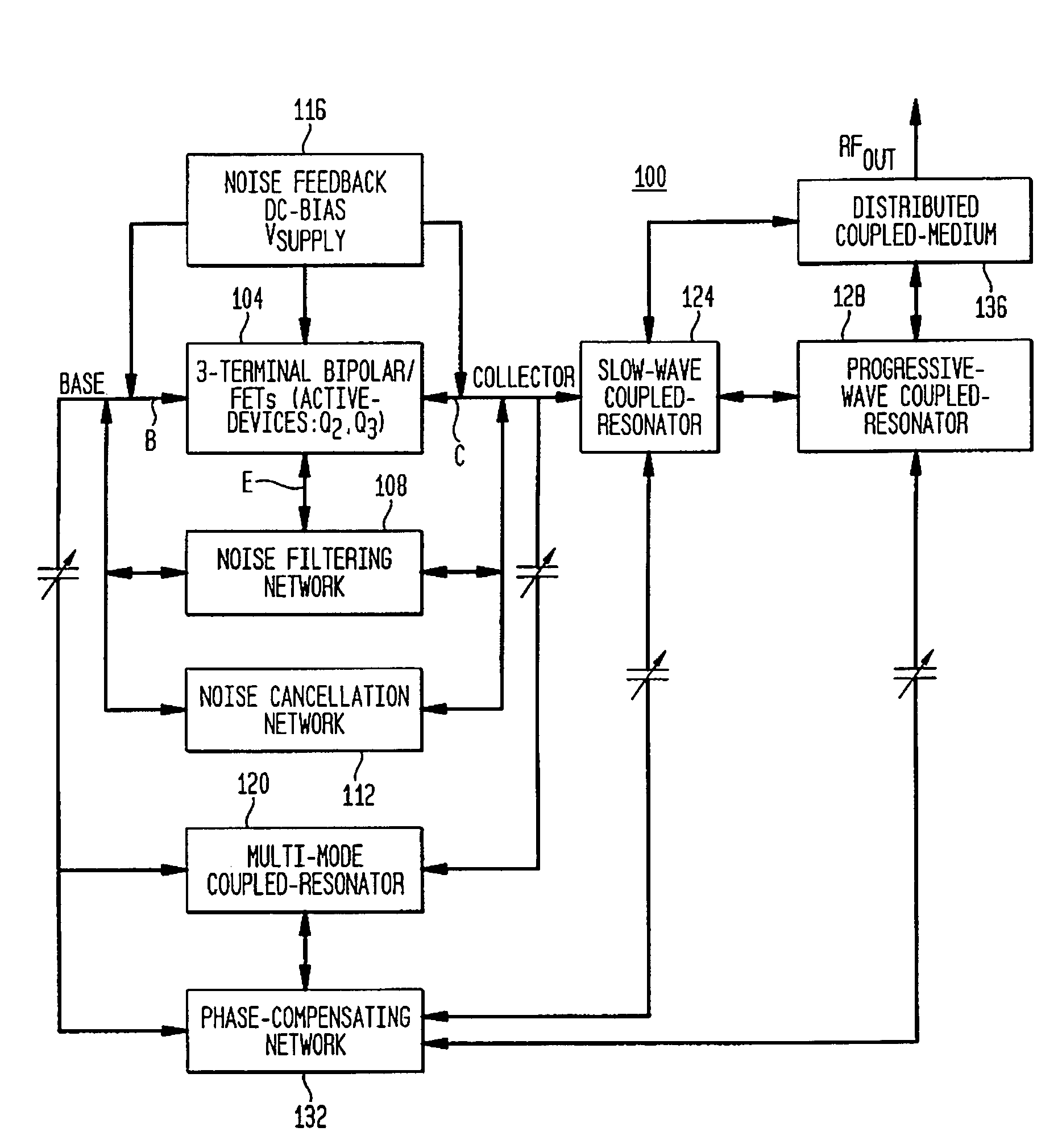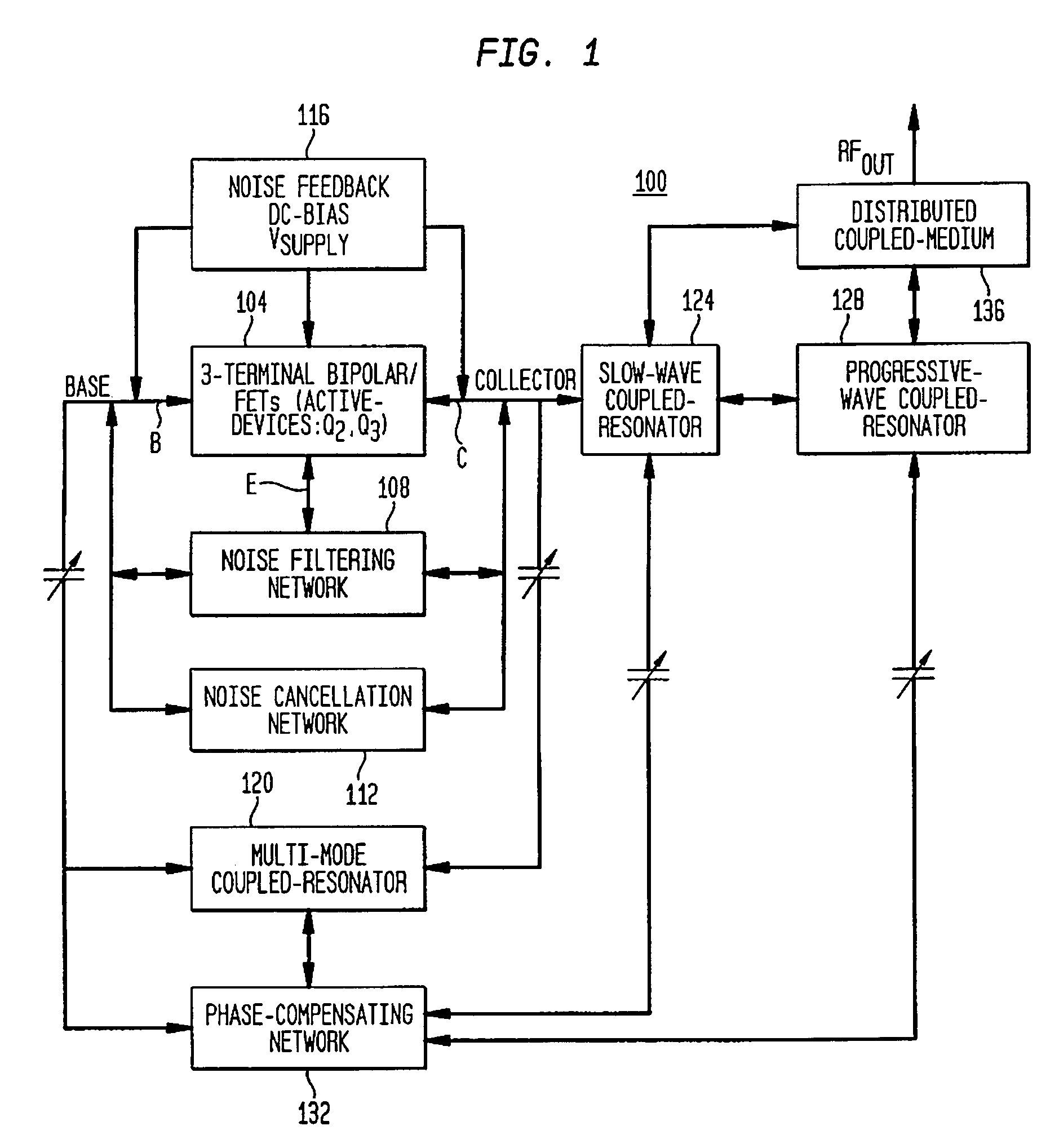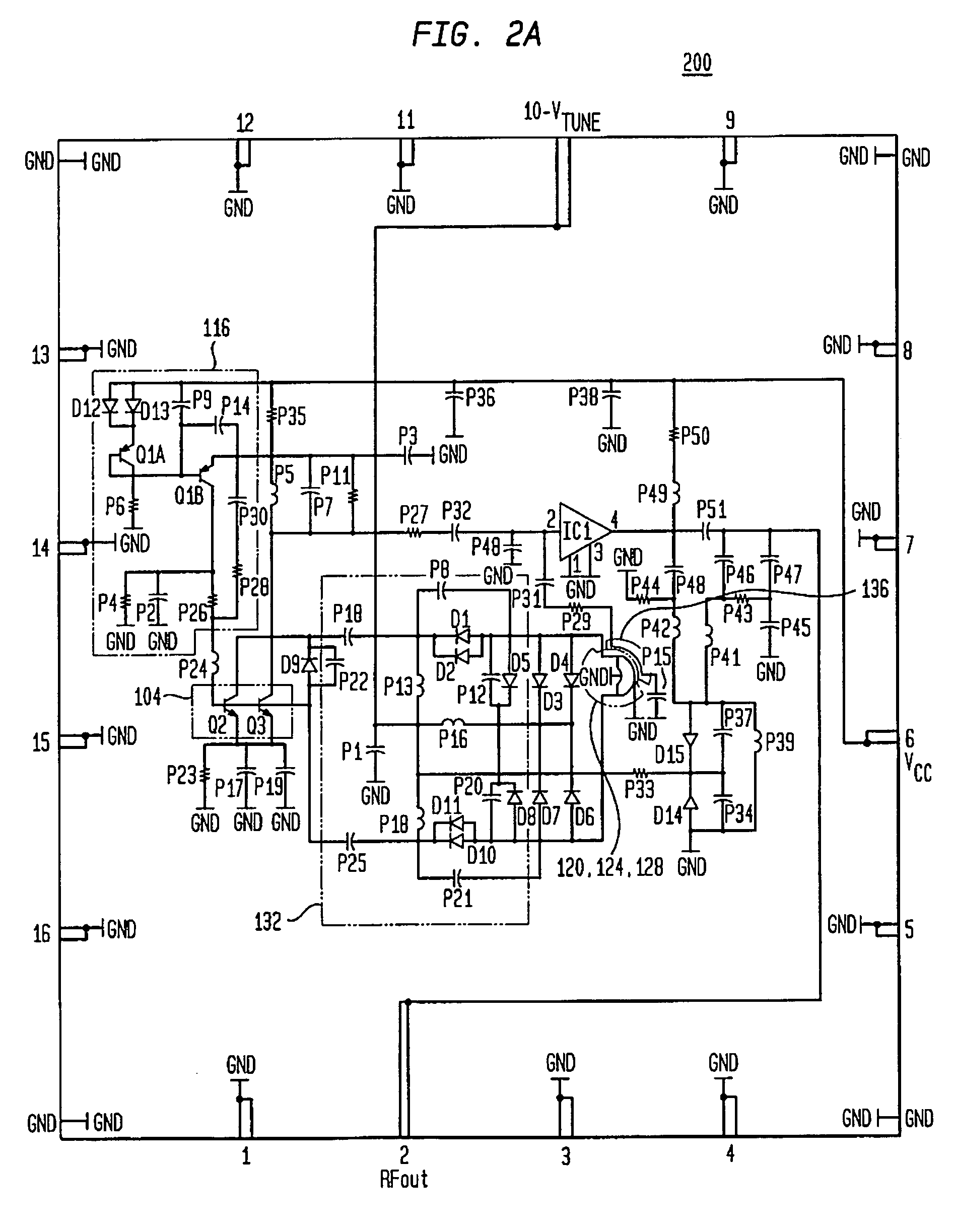User-definable low cost, low noise, and phase hit insensitive multi-octave-band tunable oscillator
a voltage oscillator, low cost technology, applied in the direction of oscillator stabilization, electrical equipment, etc., can solve the problems of increasing the cost of yig based signal generation, increasing the difficulty of thermal stable compact signal generation, and consuming significant power, so as to improve the time average load q
- Summary
- Abstract
- Description
- Claims
- Application Information
AI Technical Summary
Benefits of technology
Problems solved by technology
Method used
Image
Examples
Embodiment Construction
[0056]FIG. 1 is a block diagram illustrating the functional circuit elements of a voltage controlled oscillator 100 in accordance with an aspect of the present invention. The oscillator 100 includes an active element 104. In the preferred embodiment, the active element comprises a three terminal bipolar transistor that includes a base terminal (B), an emitter terminal (E) and a collector terminal (C). In general however, the active element may include any three terminal device which is operable to provide a 180 degree phase shift between any of its two terminals. Thus, it may also include a FET or any other type of transistor.
[0057]A noise filtering network 108 and a noise cancellation network 112 are connected in parallel between the base and collector terminals. A noise feedback and DC bias circuit 116 is also coupled across the base and collector terminals of the active device 104. In the preferred embodiment, the circuit 116 comprises an active feedback network that compensates ...
PUM
 Login to view more
Login to view more Abstract
Description
Claims
Application Information
 Login to view more
Login to view more - R&D Engineer
- R&D Manager
- IP Professional
- Industry Leading Data Capabilities
- Powerful AI technology
- Patent DNA Extraction
Browse by: Latest US Patents, China's latest patents, Technical Efficacy Thesaurus, Application Domain, Technology Topic.
© 2024 PatSnap. All rights reserved.Legal|Privacy policy|Modern Slavery Act Transparency Statement|Sitemap



